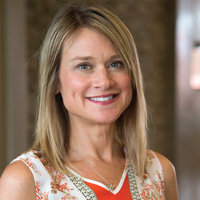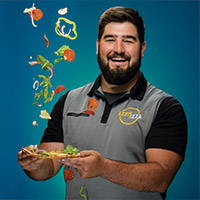10 Days in Swaziland
A Q&A with Alumna Annie Elble
How would you counter the argument that not much impact can be made in such a short amount of time?
My first trip was one week. My entire life was rocked as well as my goal of using my PhD degree to make great money, live on a lake, and travel to every beach in the world. Now I work to pay my bills, live on my friends' couches, and travel exclusively to the country that stole my heart in just one week almost seven years ago.
I think the biggest impact is made on the traveler. Many of the Purdue students didn't have a passport prior to their trip with us and some had never even been on an airplane. Students tend to underestimate their power and ability to change the world. But I've watched them go to Swaziland for 10 days and return to the states empowered to make a difference.
I think impact is tied to the experiences offered. If you go for one week and spend half the time doing tourist activities, then I could agree with the argument. But if you spend that week with the locals and experience their lives with them — crying over a baby found dumped in a pit latrine, securing treatment for an HIV+ orphan whose allergy had made his face swell, delivering food to a family of orphans who hadn't eaten in three days, and hugging a child who may not receive another one until you return — sometimes a week is all these students' hearts can bear.
How do you measure your organization's success?
Our mission is twofold: to educate here and abroad. Our success is measured by the education and experience offered to the American participants as well as our educational projects on the ground in rural Swaziland. We try to measure them in quality rather than quantity. For instance, we've spent $30,000 so far building the first primary school for orphans in a rural area of Malindza village. In January 2014, we will have our first 65 students.

These orphans are attending the new Malindza Primary School, opened in January 2014 with the support of Give Hope, Fight Poverty. (Photo provided by Annie Elble)
What's next for Give Hope, Fight Poverty?
This is a very challenging question to answer. Our efforts are education-based, but sometimes that can lead to other things. For instance, we work with a primary school in eLangeni village. When I asked the headmaster what she needed most to educate the orphans, she took me to the students' pit latrines behind the school. There were eight latrines and only six were functional for 634 children. They were all overflowing with feces, causing public health alarm. Give Hope, Fight Poverty raised $2,500 to build a new pit latrine and hand-washing station.
If we had created our own goal to provide this school with some educational program, such as installing a computer lab, we would have been imposing our solution for what we believed their need to be. GHFP functions in such a way that all of our programs originate from conversations with local Swazi partners about their current challenges and their ideas of how to alter their present reality to create a better future for their orphans. Our goal for GHFP is to continue doing this for years to come and hopefully expand to other areas in Swaziland where orphaned children are just as needy and thus far neglected by the rest of our world.











